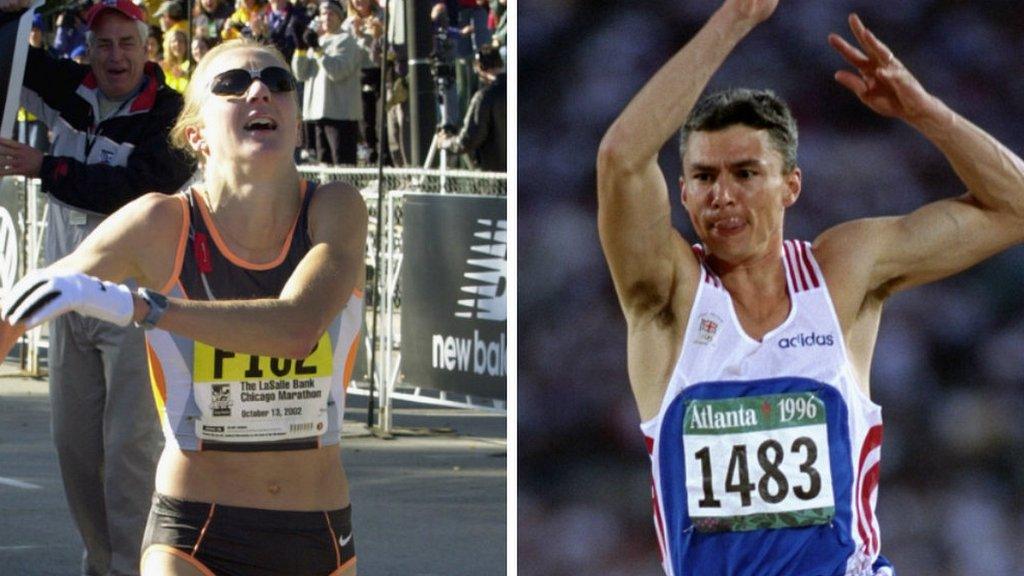Sanya Richards-Ross backs records reset but says post-2005 times not all clean
- Published

Richards-Ross' time of 48.70 seconds set in 2006 could become the new 400m women's world record
Former world and Olympic champion Sanya Richards-Ross says she backs proposals to rewrite world records - but that not all post-2005 bests will be clean.
Richards-Ross could inherit the 400m record, replacing the 47.60 seconds set by East Germany's Marita Koch in 1985.
The Jamaica-born American's time of 48.70 is the fastest since 2005.
And she told BBC World Service's Sportsworld programme that, should she be awarded the record, she "can vouch 100%" that it is clean.
Although Richards-Ross does not think all world records set after 2005 - the point from which, under European Athletics proposals, records would be reset - are clean, the 32-year-old said: "I think there's a better chance and a higher ratio of them being clean."
Koch competed during a time when it is known that East Germany was doping its athletes but she has denied any wrongdoing and never failed a drugs test.
However East German secret police documents, which detailed doping dosages of athletes including Koch, were made public in 1990.
Richard-Ross, who retired last year, said knowing this made her feel that the record was unobtainable.
"It's just not logical," said the Olympic 400m champion from London 2012. "Women were running 51 and 52 seconds prior to the 1980s and for that to drop to 47.60 just blows your mind.
"I always knew the 400m record was just so far out of reach and no matter how well or how hard I trained, or what shape I was in, I was never going to dip under 48 seconds."
What is European Athletics proposing?
If the proposals put forward by athletics' European governing body are accepted by world body the IAAF, a world record would only be recognised if it met all three of the following criteria:
It was achieved at a competition on a list of approved international events where the highest standards of officiating and technical equipment can be guaranteed;
The athlete had been subject to an agreed number of doping control tests in the months leading up to it;
The doping control sample taken after the record was stored and available for re-testing for 10 years.
The IAAF has stored blood and urine samples only since 2005 and current records that do not meet the new criteria would remain on an "all-time list", but not be officially recognised as records.
- Published4 May 2017

- Published2 May 2017

- Published3 March 2018
